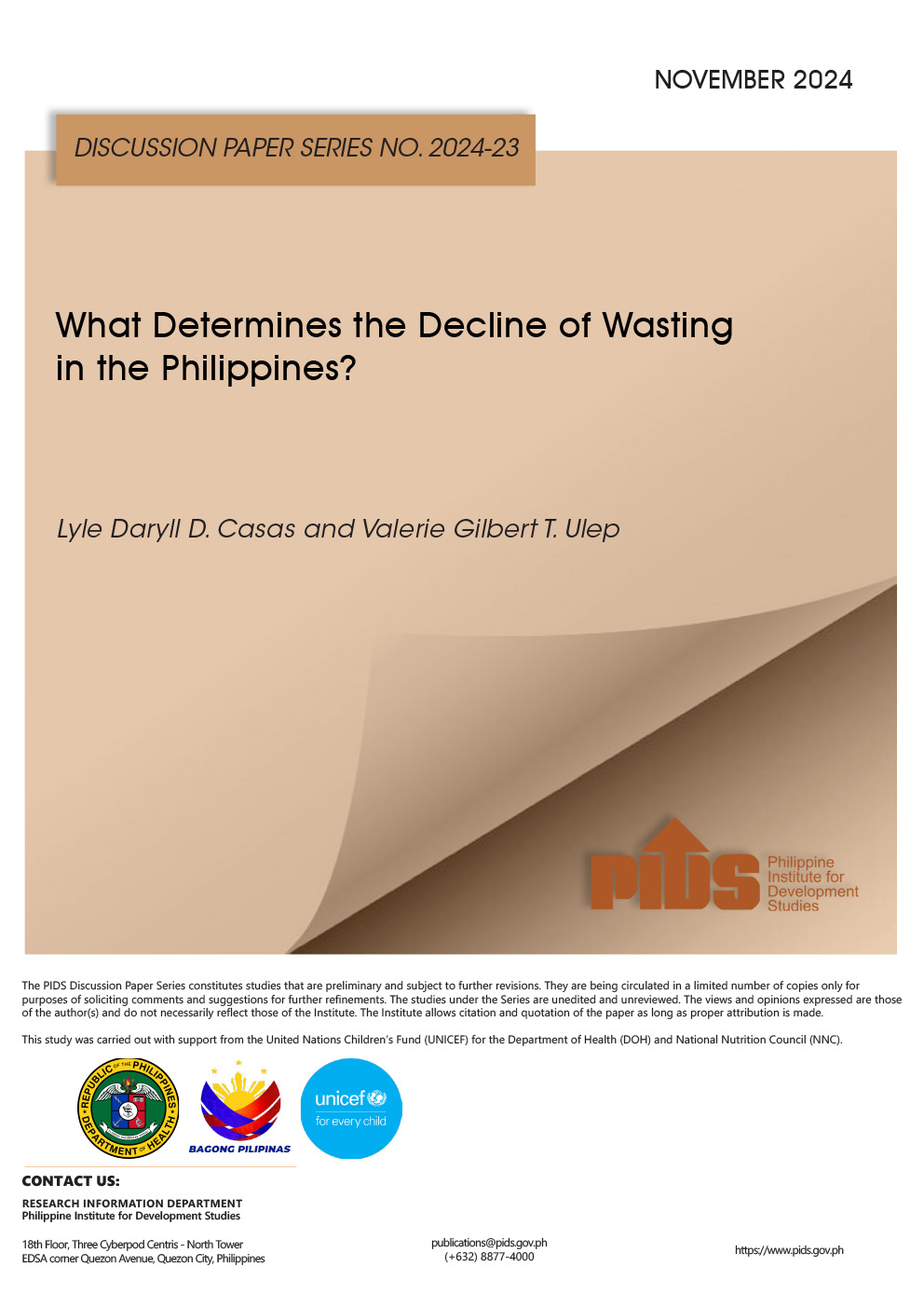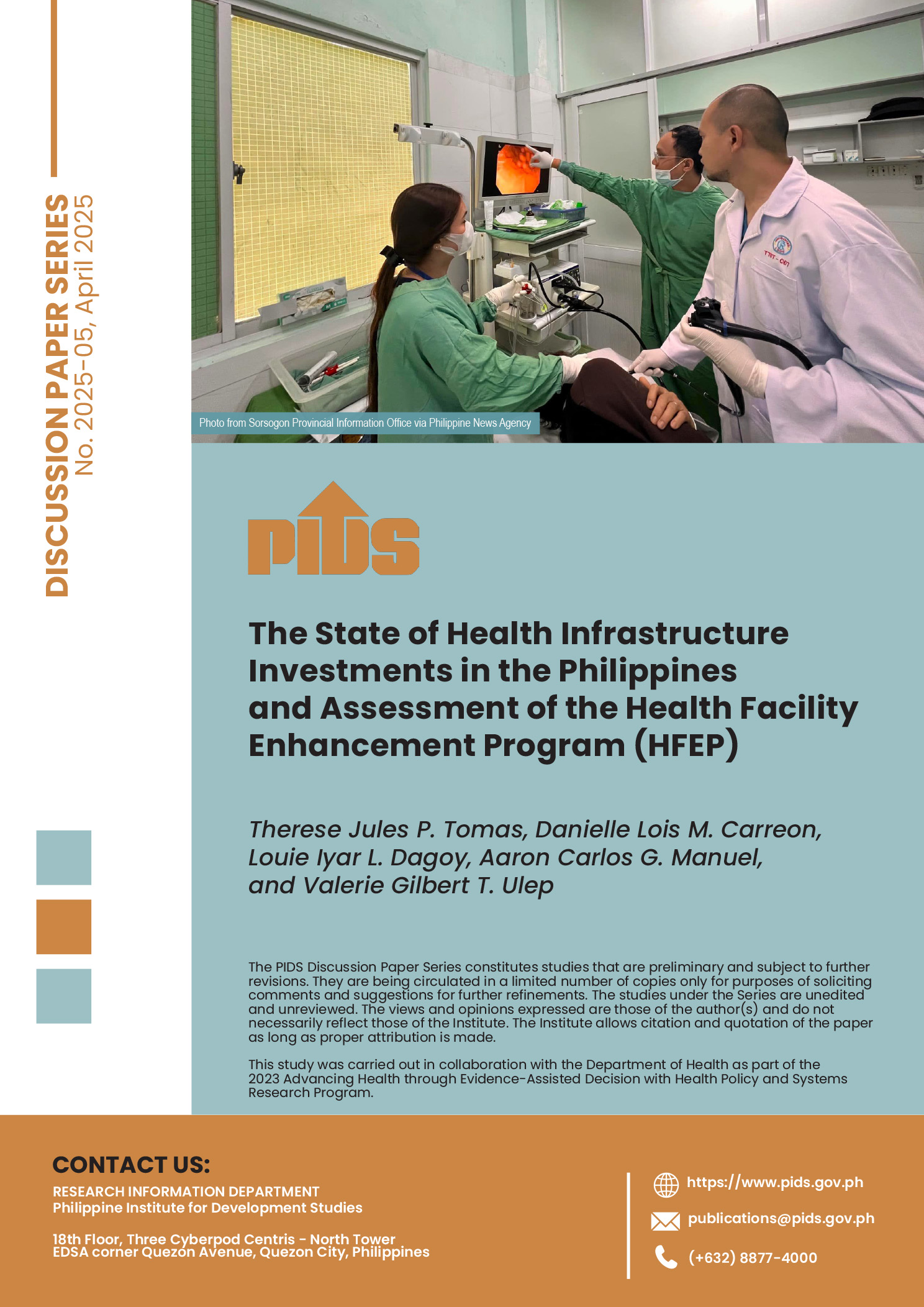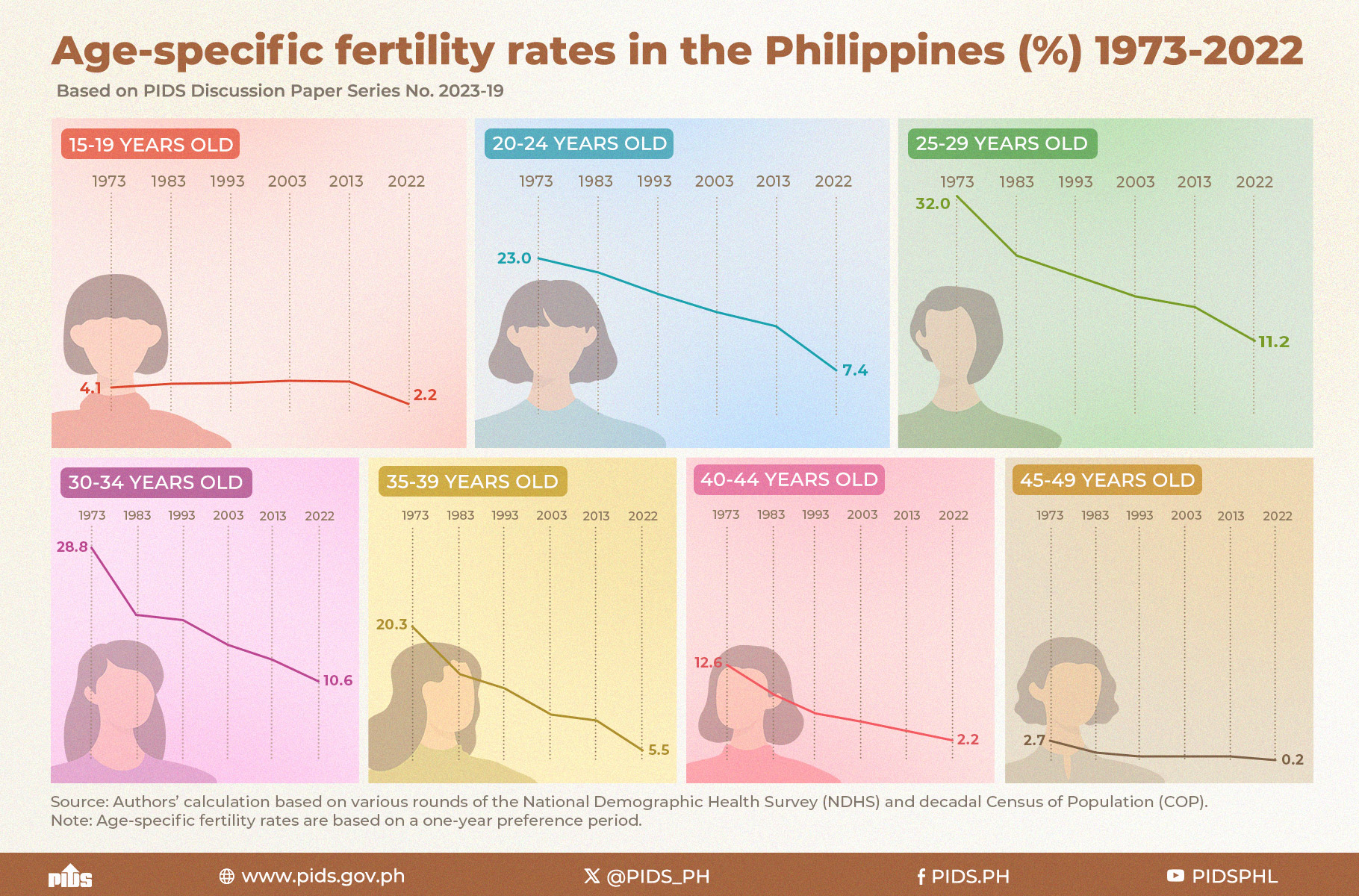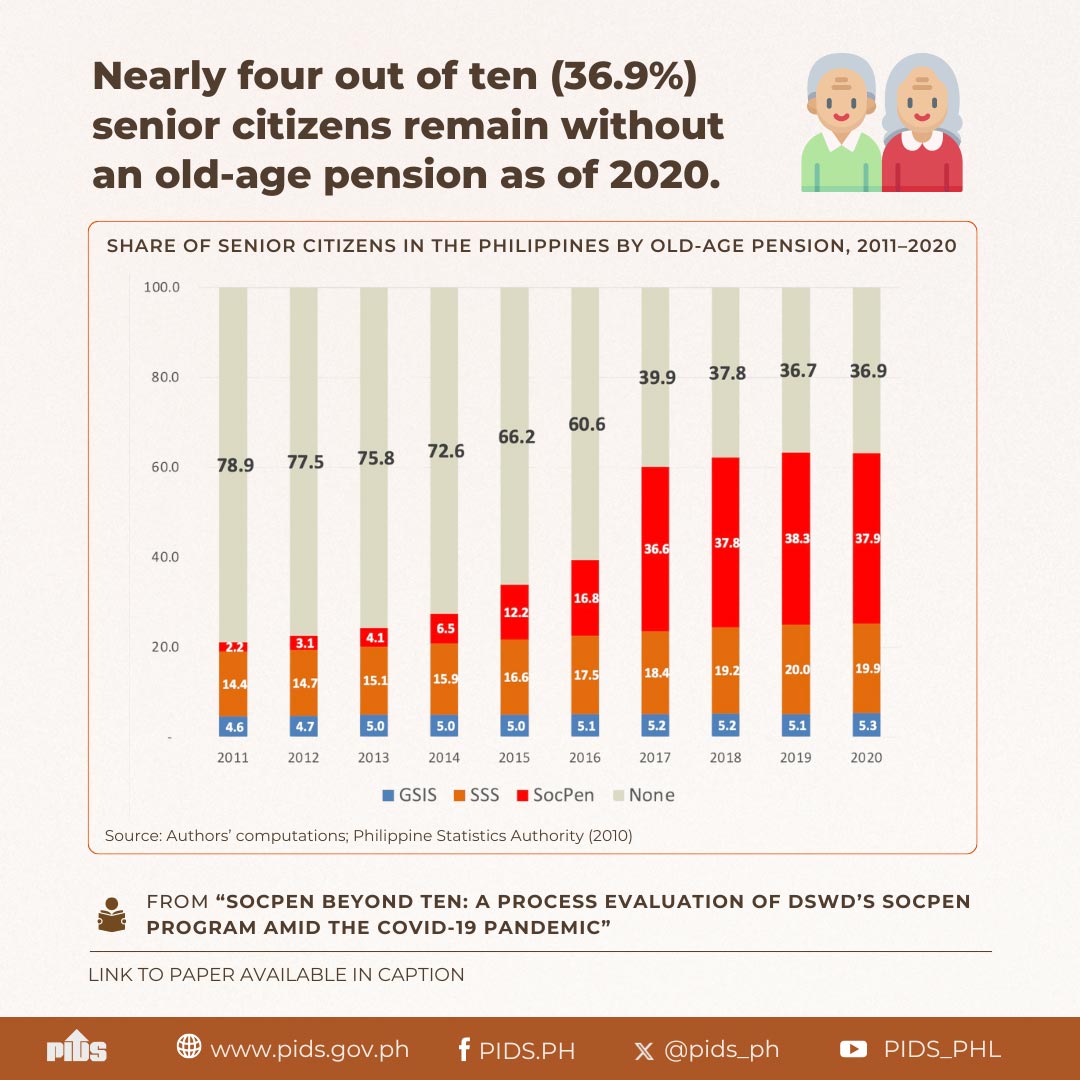Given the controversial nature of the issue of population growth, there is a need for the government to state clearly its position with respect to family planning alternatives and its role in fertility decisionmaking of couples.
Dr. Alejandro Herrin, professor at the UP School of Economics, stated in a Policy Note with the Philippine Institute for Development Studies (PIDS) titled "Lack of Consensus Characterizes Philippine Population Policy" that the lack of stable consensus on Philippine government's policy on population control during the past three decades has been the reason behind the country's high population growth.
He noted that compared to neighboring countries like South Korea and Thailand, the country's fertility decline has been the slowest. As a result, the Philippines did not have the advantage of a more favorable age distribution that these countries had which contributed to their sustained economic growth and higher standards of living.
Herrin explained that from the Marcos Administration in 1967 to President Arroyo's Administration , the national population program has been characterized by shifting objectives of fertility reduction, upholding of reproductive rights and promoting maternal health.
Dr. Alejandro Herrin, professor at the UP School of Economics, stated in a Policy Note with the Philippine Institute for Development Studies (PIDS) titled "Lack of Consensus Characterizes Philippine Population Policy" that the lack of stable consensus on Philippine government's policy on population control during the past three decades has been the reason behind the country's high population growth.
He noted that compared to neighboring countries like South Korea and Thailand, the country's fertility decline has been the slowest. As a result, the Philippines did not have the advantage of a more favorable age distribution that these countries had which contributed to their sustained economic growth and higher standards of living.
Herrin explained that from the Marcos Administration in 1967 to President Arroyo's Administration , the national population program has been characterized by shifting objectives of fertility reduction, upholding of reproductive rights and promoting maternal health.












